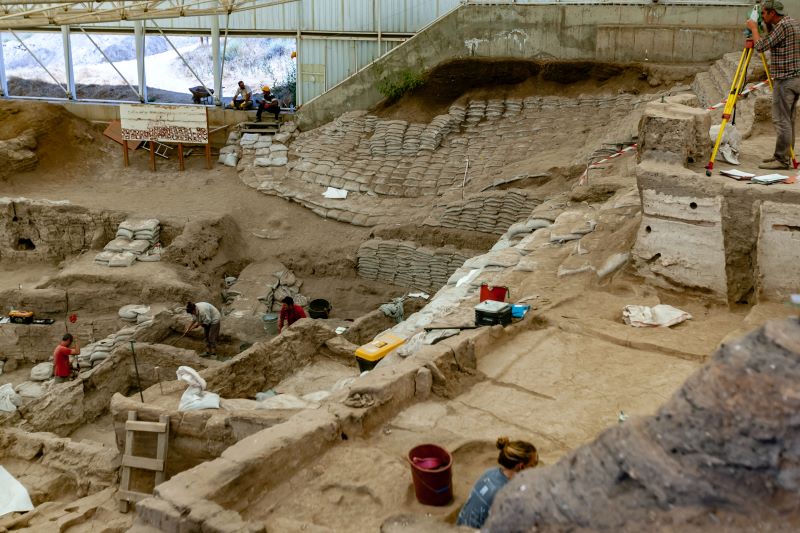Archaeological site in Çatalhöyük, Türkiye | Photo by Hulki Okan Tabak via Unsplash
Contrary to popular belief, science is not a domain exclusive to the academic community. Everyone may get involved and contribute to the development of knowledge, and you will have a chance to see it yourself in 2024 when Katowice become the European City of Science.
The year-round celebrations are held in the belief that citizen science and the social knowledge bank are the fundamental dialogue instruments, and the city should support bottom-up initiatives, particularly those oriented towards solving local problems using science.
What is citizen science?
Citizen science is research carried out with participation from the general public. The premises of this idea are about increasing the involvement of citizens in solving local problems and concerns by including them in the world of science.
While citizen science developed at the end of the 20th century, the first examples count as many as over a hundred years.
Research collaboration between scientists and non-scientists concerns various fields of science; the most popular ones are observing the night sky, local observations on the effects of climate change or birdwatching.
Volunteers may be involved on many levels. They may either engage in some simple work—such as reading data from measurement devices or defining a particular problem—or even work independently on the same level as scientists do.
The phenomenon of citizen science has grown in popularity thanks to the development of the Internet, smartphones, and tools for data collection and dissemination. Modern smartphones give a possibility of taking good-quality pictures, and scanning and collecting data, which can be sent to scientists in the blink of an eye.
Activities within citizen science are often implemented in the bottom-up form, i.e. non-professionals indicate troublesome problems, solving of which requires a scientific approach.
How to get involved?
The most common form of citizen science is collecting data and providing help in its analysis. It is all about activities and actions that do not require advanced technology or research equipment.
When it comes to Katowice – the European City of Science, scientists will be able to join forces with the citizens to improve the quality of life in the city and the region. For example: citizens complain about excessive noise and ask scientists for help. A scientist who undertakes to study and solve this problem might use the support of citizens who might regularly measure the noise around them and collect city sounds. Based on a database created in such a way, a researcher may analyse the problem and suggest a solution.
The involvement of people interested in science around the world—although not necessarily professional scientists—is of great importance in advancing knowledge. One such interesting example is researching the phenomenon of ‘kelping,’ or playing with seaweed, observed among some whales. Thanks to numerous videos published by various people on the Internet, experts were given a huge database they may use in their further research.
Another example is researchers attempting to decipher the ancient Herculaneum scrolls. Thanks to publishing all data on the Internet, citizen scientists can access everything they need online, including algorithms and tutorials; the contestants are additionally motivated by prize money for significant benchmarks.
Multifaceted benefits
There are numerous benefits of citizen science. Scientists are able to broaden the scope and range of their research and collect vast databases, which might not have been possible otherwise. Sometimes, passionate amateurs may bring a fresh look and push research forward when it has stalled.
On the other hand, non-professionals may get involved socially, and contribute to the identification of societal needs and experience a sense of agency in the process of changes occurring in their cities and regions.
Moreover, citizen science is a modern form of education which gives an opportunity to discover the practical side of science instead of passive knowledge acquisition.
It is also a factor critical in deepening the sense of community, being involved in local projects and building civil society.
Would you like to get involved in the development of science and have ideas for citizen science initiatives? Feel free to write to emn@miastonauki.pl.






